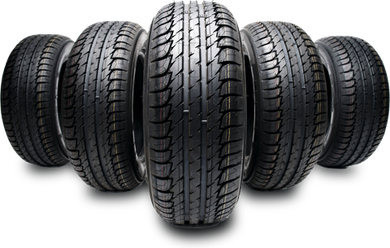Wide Option of Tires Morris IL: Locate the Perfect Suitable For Your Lorry
Wide Option of Tires Morris IL: Locate the Perfect Suitable For Your Lorry
Blog Article
Tire Service: The Influence of Climate Condition
When it involves making certain optimal performance and safety when driving, recognizing the influence of climate problems on tire solution is vital. From scorching warm to icy roads, each climate element can significantly affect tire performance and total driving experience. By diving into the impacts of varying climate condition on tires, vehicle drivers can gain beneficial insights that might improve their car's performance and longevity. In this conversation, we will discover the detailed connection between climate condition and tire service, losing light on the value of weather-specific tire maintenance methods and considerations.
Heat and Tire Performance
When exposed to high temperature levels, tires experience modifications in efficiency that can considerably influence vehicle security and handling. The warm produced from extended driving or warm climate problems triggers the tire rubber to soften, leading to decreased walk life and increased wear.
Furthermore, high temperatures can accelerate the process of tire aging, triggering the rubber to weaken much more rapidly. This can result in splits, bulges, and other kinds of damages that jeopardize the structural integrity of the tire. To mitigate the results of warmth on tire efficiency, vehicle drivers must routinely check their tire stress, turn tires to make certain also put on, and inspect for any type of indicators of damage. In addition, making use of tires particularly designed to stand up to high temperature levels can help maintain optimum performance and safety and security when driving.
Winter Results
Winter problems can have a substantial effect on tire performance and safety and security. As temperatures decrease, tire rubber can set, resulting in lowered traction on icy or snow-covered roads. In winter, tires might additionally lose atmospheric pressure more rapidly, which can impact taking care of and fuel effectiveness. In addition, chilly temperatures can trigger tire sidewalls to tense, raising the risk of damages from potholes or other roadway dangers.
To reduce the impacts of winter on tires, it is crucial to routinely examine tire stress and inflate them to the supplier's recommended levels. Using wintertime or all-season tires created for cool weather conditions can also improve traction and grip on icy or snowy roads - tires morris il. view it now Appropriate tire maintenance, including regular evaluations for wear and damage, ends up being much more essential during colder months to ensure optimal efficiency and security
Rainy Conditions Impact
Tires with worn-out footsteps are much more susceptible to hydroplaning, where a layer of water develops up in between the tire and the roadway surface, leading to loss of grip. To battle this, vehicle drivers should routinely evaluate their tires for sufficient tread depth and consider investing in tires specifically created for damp problems.

Snow and Tire Safety And Security
When driving in snowy conditions, having the ideal tires can make a substantial difference in safety and security and performance. Winter tires are made with unique rubber compounds and tread patterns to give much better grip on snow and ice compared to all-season tires.
Along with making use of winter season tires, it is crucial to guarantee they are properly inflated. Cold weather can cause tire pressure to go down, affecting grip and handling (tire shop morris). Consistently checking and keeping the correct tire stress is crucial for ideal efficiency in snowy problems

Weather-Related Tire Maintenance
Weather-related tire maintenance includes an array of practices aimed at making certain optimum tire feature and longevity in various weather situations. One crucial element of weather-related tire upkeep is tire stress law. Inspecting tire tread on a regular basis and replacing tires when walk wear gets to a specific deepness is crucial for keeping grip and security in damaging climate.
Verdict
In verdict, climate problems have a significant influence on tire efficiency and safety (morris tire and alignment). From warm affecting tire stress and use to cold climate reducing grip, it is necessary to think about the climate when preserving and using tires.
In this discussion, we will explore the intricate partnership between climate conditions and tire solution, shedding light on the significance of weather-specific tire upkeep techniques and factors to consider.

Report this page